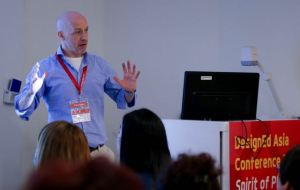One of the big pushes in British education/schooling in the last 10 years has been in the direction of Assessment for Learning (AfL). Of all the many diverse areas of the various national strategies this area seemed to generate the most enthusiasm and interest – as well as being one of the few areas of research that could be seen as directly feeding into practice.
Over the 10 years the area has however often been misunderstood and frequently reduced to a set of tools habitually delivered inappropriately with less effect than Wiliams and Black may have hoped for. Indeed I may be considered complicit in this as my own book on Assessment for Learning offered 48 ways to improve AfL. In my defence however, I have made the point that AfL is much more than a series of handy tips and that it requires a cultural change in schools and in teachers thinking for it to be a genuine success.
However despite the vast amounts of money that have been spent on AfL its success and impact has been limited except where there has been a real commitment to engage in genuine teaching, learning and assessment. As a consequence I have spent time considering the impact of AfL and one conclusion I am drawn to is that the concept if learning within AfL is often misconstrued. As a result, if learning is perceived as a narrow mediated activity then no matter what strategies are employed the results will be inadequate. As usual we are embroiled in Wittgensteinian word games, as is it really learning that we mean as part of AfL when used in a context of a schooling culture that may not require learning to be considered successful or where learning may be perceived in limited terms?
Therefore to reconcile this tension I have turned my attention to development as an enhanced form of learning. My thinking for this draws upon Vygotskys zone of proximal development (ZPD) – note ‘development’ and not just learning. Often ZPD focuses purely on learning but as identified this is too narrow a concept in a schooling context. Therefore moving towards ‘Assessment for Development’ AfD is not merely an attempt at one-upmanship but is a genuine attempt to reconcile learning in a more powerful and engaging way.
So what is the difference? In my view development is concerned with bringing about change in the learner. It takes a much broader view of the learner and considers the changes to be developed in the learner – so learning is nothing with development. There may be subtleties in distinction but development considers the learner and the learning in a context rather than learning as an isolated act.
As indicated if AfL is often misunderstood as a series of tools and when it is – it is merely icing on an undercooked cake. Development has to consider the stage of the learning (progression), the level of learning (differentiation), and the context of the learning (why and where).
This is all very much early thinking but reconceiving learning as development if nothing else offers a powerful metaphor for reconceiving the purpose of schools as ultimately the key question is – in what ways do we want learners to develop? Which is a much more powerful questions than what do we want children to learn?
